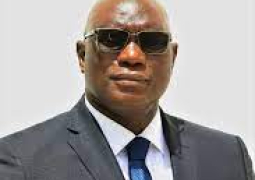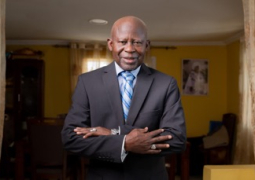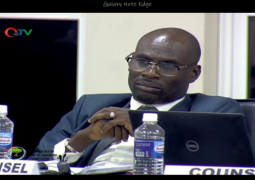
This followed the no-case submission made by the defence counsel who argued that the prosecution did not establish a prima facie case against the accused persons to warrant them to open their defence. He submitted that the prosecution witnesses were discredited through cross-examination. He further said that they contradicted themselves in their testimonies.
But ASP Jahateh did not agree at all. In his deliberation, he posited that the matter was adjourned for reply. He adduced that from the totality from the evidence of the six prosecution witnesses, it was such points to be deduced from the evidence.
He argued that the first accused, Yakumba, was on the scene and accosted that her brother would not be arrested. He said that the second accused, Yusupha Jaiteh, was put on the scene by the witnesses. “From the evidence of Ebrima Fadera, there was an assault. The prosecution evidence indicates that the arresting officer was held during an ordinary hour on the scene,” he told the court.
He further stated that the issue to be determined was whether the prosecution had established a prima facie case for the accused to enter their defence. He cited Section 166 of the Criminal Procedure Code to support his argument. “Section 166 clearly states that if at the closure of the prosecution case the prosecution has not made a case against the accused persons, the court shall acquit them. But according to Section 167, if the prosecution has made a case against the accused persons, the accused shall be called upon to defend themselves,” he submitted.
He posited that what was presented by the prosecution called for explanation by the accused persons. He argued that once the prosecution has established the minimum requirement of the ingredient and element of the offences charged, the defence is required to be heard. He cited a Nigerian case to convince the court.
“There are several decisions warranting the court to discharge the accused persons after a no-case submission. It is clear from the evidence adduced that the facts need some explanation which the accused should make with the view of the evidence adduced. It is the judge’s duty when a no-case submission is made to discharge an accused where the evidence adduced does not disclose minimum evidence establishing the facts of the offence charged,” he submitted.
He told the court that the evidence of the witnesses connected the accused to the offences charged. He stated that the cross-examination by the defence did not shake the witnesses in the dock. “For a no-case submission to succeed, three requirements must be met. One, the prosecution must have failed to establish the ingredient and element of the offence charged. Two, the evidence of the prosecution must have been thoroughly discredited so much that it will not be necessary for the accused to open their defence. Three, the prosecution witnesses must be so incredible for a reasonable court to convict the accused. These are laid down principles in the English Practice Note 1962,” he argued.
He noted that the evidences of the prosecution witnesses were not at all discredited through cross-examination. “The elements of the offences charged have been established against the accused persons. The question one should ask is whether this piece of evidence calls for explanation on the part of the accused persons. The answer is certainly yes,” he said.
He further adduced that all what the prosecution needed was to establish a prima facie case to invite the accused to open their defence. “On the term prima facie, we refer the court to the case of Godwin Chianugo versus The State 2006, ICCPR page 62,” he said.
“When a submission of no-case is made on behalf of an accused person, the trial court is not dare call an opinion on any evidence. The court is to rule accordingly that there is before the court no legally admissible evidence linking the accused to the offence charged. If the submission is based on discredited evidence, such evidence must be apparent on the face of the record. If this is not the case, it will fail. It is our submission that there is nothing on the face of the record that the evidences are so discredited that they render the eventual argument of the prosecution valueless,” ASP Jahateh told the court.
Well armed with legal authorities, he posited that if the court was not satisfied by going by what was placed before the court, and there was no legally admissible evidence at all against the accused, the court was bound to acquit the accused. “In such instance, refusing the application and calling the accused to enter their defence would be tantamount to placing the accused on the onus to establish their innocence,” he stated.
If on the other hand, he went on, there was legally admissible evidence devoid of hearsay, the court was obliged to call upon the accused to enter their defence. “We therefore urge the court to discountenance the submission of the defence and ask the accused to enter their defence,” he concluded.
On points of law, Yankuba Darboe, the defence counsel, rose and told the court that the starting point was Section 166 of the Criminal Procedure Code. He argued that this section avails the accused the right to make a no-case submission. “The prosecution has stated that all what they need is to establish a prima facie case against the accused. What is essential is that the prosecution should prove the ingredient and element of the offence charged. Secondly, the evidence of the prosecution must not be discredited. The evidence of the prosecution witnesses was discredited because one of them lied. They contradicted themselves,” Counsel Darboe argued.
He further noted that the only evidence presented linking the accused to the offence was the oral evidence but not the documents tendered. “The prosecution has woefully failed to establish a prima facie case against the accused. We submit that the requirement of the defence is to prove the innocence of the accused. We beg the court to grant our application,” he adduced.
Now that both parties have tried to convince the court to rule in their favour, Principal Magistrate Isatou Janneh-Njie has a big burden on her to make a ruling on the 15th June, 2021, as to whether Yakumba Jaiteh and Yusupha Jaiteh have a case to answer or not.





